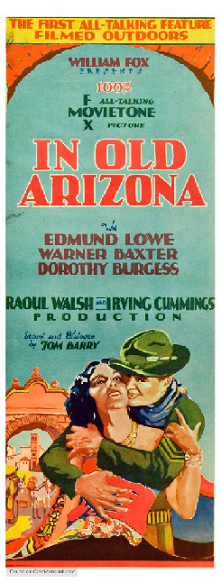
Starring: Chester Morris, Mae Busch, Harry Stubbs
Directed: Roland West
Summary: A strident police captain investigates a murder whose main suspect is an ex-gangster with a seemingly airtight alibi
Other nominations: Actor (Morris), Art Direction
Note: for the 1928/29 Oscars, there were no listed nominees for the first and only time, just the winners were named. Instead, the Academy went back and retroactively determined which films received the most consideration for each award.
Positives
-Chester Morris is perfectly fine as the above-mentioned ex-gangster and may have set the template for future smooth-talking street toughs in future films
-Well, there was one memorable scene at least: the cops bring someone from the gang into the station, and in order to get him to talk, they pull a gun out, put it against his head and threaten to kill him if he doesn’t cooperate! Serious anti-hero cops right there.
Negatives
-Man, this makes The Racket look great in comparison. Most of the acting is poor, but not in that over-done silent film way, but instead with really flat line delivery which is pretty monotone and robotic. One of the actors is trying to play a drunk, but instead comes off as…slow.
-Very cheap production design with bad matte paintings and some bizarre set design. Sort of went for a German-expressionist look, but they kind of went halfway which makes it look lazy instead of artistic
-There are four random singing segments at a nightclub in the movie, which are out of place and are only there because sound was such a novelty at the time
Overall
Boring movie that hasn’t aged well (especially the acting and the sound which is tough to deal with)-at least it’s short (1 hour 23 minutes) and the brutal cop has some entertainment value. If you have to watch one of the two gangster films so far, watch The Racket instead
Rating: D




